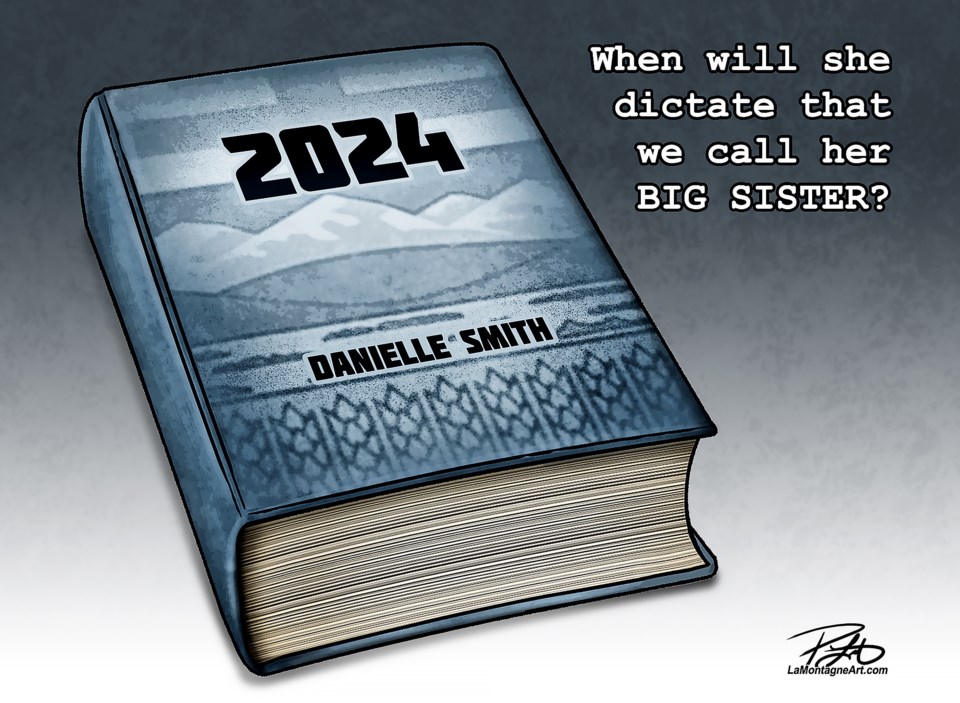The last two weeks have clearly shown the Alberta government wants there to be no confusion on questions of governance jurisdiction.
After tabling a bill that will limit a municipality’s ability to negotiate directly with the federal government for funding, the province introduced a bill that will allow it to scrap municipal bylaws, remove elected officials and formalize political parties in Calgary and Edmonton for the 2025 municipal election.
Anyone wondering who yields power in provincial and municipal politics can stop.
The bill has met with swift derision from across the province, with its necessity openly questioned and provincial officials giving little to no reasoning behind the need for certain legislative changes in the bill.
Alberta Municipalities – the advocacy group for more than 260 of the province’s municipal governments – called it a “power grab” that allows the provincial government to fire any council member and remove any bylaw it doesn’t like.
The mayors of Edmonton and Calgary – who are most likely to face provincial scorn – have vehemently opposed the latest bill, with Edmonton Mayor Amarjeet Sohi saying it’s “an attack on local democracy.”
The NDP went one step further saying it was a step toward a “totalitarian government.”
Though Premier Danielle Smith and Municipal Affairs Minister Ric McIver have continued to state they would rarely use the powers, the ability to do so on a whim is now present.
Despite being a blatant reminder to municipal governments about who is in control, aspects of the bill – on paper – can be promising even though it is overstepping overall.
Following significant issues in the City of Chestermere, four council members were removed, but only after a municipal inspection report and a period of supervision by an official administrator. The four council members continue to legally challenge the province’s decision, but the new legislation would give the province the ability to do so at rapid speed.
Having orientation training for councillors be mandatory – though falling short of having independent sources do so – and giving municipalities the ability to require criminal record checks for candidates is promising, while non-profit affordable housing providers being exempt from property taxes could aid in the ongoing housing crunch.
The ability to fire elected officials and amend or repeal bylaws – which the province already can do, but only with land use bylaws or statutory plans – will become easier. It could be Pandora's box in the province at some point wading too far into municipal weeds.
The soon-to-be new powers aren’t without precedent.
In Ontario, the Doug Ford government has paved the way in inserting provincial jurisdiction over municipalities. One of its first acts was to cut Toronto city council in half, stopping municipalities from building fourplexes and all but mandating strong mayoral powers that allow mayors to pass bylaws with only one-third of council support.
Ministerial Zoning Orders have also been used hundreds of times – such as in The Greenbelt – to override legal and policy guidelines without public engagement or a chance to appeal. Municipalities, however, have been eager to use it to their advantage with dozens asking the province to use it with unpopular projects.
In 15 years of governing, the Liberals used it 16 times. In six years, the Ford government has taken advantage of it more than 100 times.
Like it or not, under existing legal precedence, provincial governments have full control of municipalities. Whether or not there will be a legal challenge remains to be seen, but is likely to be unsuccessful.
The British North America Act of 1867 instituted the power dynamic for provincial governments and the 1982 Constitution Act solidified it. Unless challenged in the Supreme Court – good or bad – municipalities will continue to be the playthings of a provincial government.
Municipalities in Alberta are about to enter a new and unexpected future, while tensions between the province and municipal governments are likely only to grow.
Courtesy the Rocky Mountain Outlook

